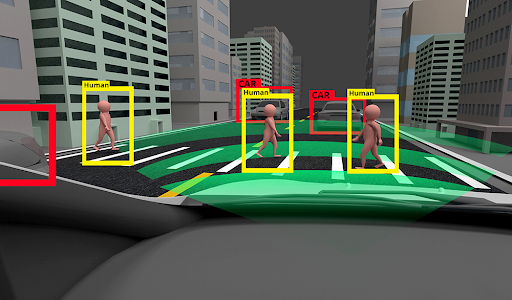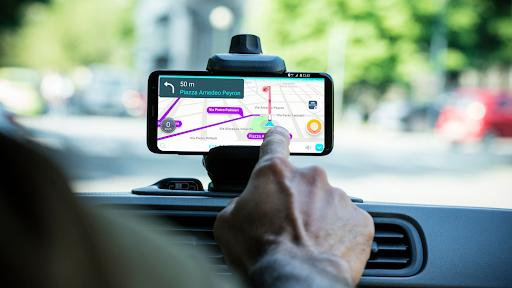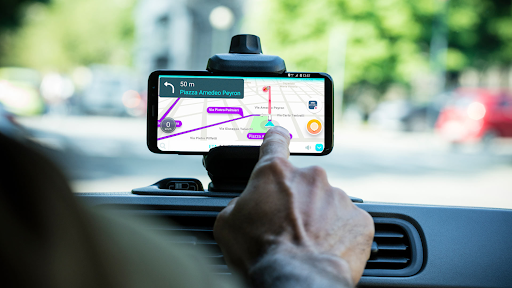
Generative AI is Set to Revolutionize the Automotive Industry
We’re on the brink of a generative AI revolution that spans countless industries. For an automotive ecosystem that’s ripe for innovation, we’re likely to see generative AI play a key role in the development of new products and services designed to enhance the driving experience.
The impact that generative AI is set to have on the automotive industry cannot be overstated. Market forecasts suggest that the generative AI in automotive market size is expected to swell to around $2.105 billion by 2032, up from $271m in 2022 and growing at a CAGR of 23.4%.
But what actually is generative AI? The term generative AI stems from the ability of artificial technology to produce different forms of content, such as text, images, audio, and just about any form of data from a simple set of user prompts. This means that generative AI can use existing data to create something entirely new in order to benefit users.
But how will this generative AI boom manifest? And what can drivers expect from this brave new frontier in artificial intelligence? Let’s take a deeper look into how generative AI has the power to change the automotive industry for good:
Refining Autonomous Driving
Crucially, generative AI has the potential to pave the way for the safe rollout of autonomous vehicles (AVs). This means without putting the public at risk while the technology matures.
This is because generative AI has the ability to generate images and videos that can be utilized to build true-to-life scenarios. Whereby, autonomous vehicles can learn and adapt to different environments within a controlled setting.

In order to effectively ‘train’ an autonomous vehicle, it’s important for the AV to tap into vast quantities of sensor data. Generative AI models can help to create synthetic data that are capable of reflecting real-world circumstances to challenge the intelligence of the vehicle response systems.
This can help to remove the necessity of expensive field testing and paves the way for more intuitive algorithms to train the decision-making models of AVs.
Transforming the In-Car Experience
The in-car experience is set to radically change with the help of generative AI in modern motors. We’re already seeing navigation systems like Waze utilize generative AI to learn from user preferences and traffic conditions to deliver personalized route recommendations in real-time in a measure that help to improve road safety by keeping drivers content and calm.

Car firms like Mercedes have also sought to explore the potential of mixed reality systems powered by generative AI, which can help to bolster both the quality of both navigation and infotainment.
We could even see a better balance between driving and working through generative AI. This is due to the technology helping to combine calendar and event scheduling services. Plus, it includes voice transcription, dictation, and data retrieval to improve productivity when on the go.
Better Production and Safety
A rewarding use case for generative AI in the automotive industry is in the realm of design and engineering. Generative AI can help designers and engineers to deliver new concepts. It can also improve their development cycles and enhance existing designs with the help of intelligent insights.
In practice, generative AI has the ability to create intelligent 3D models of vehicles. Ones based on simple prompts or a series of rudimentary sketches. This can offer an efficient time-saving tool. The tool helps designers to build more comprehensive concepts and to visualize their ideas more effectively.
Crucially, generative AI can also optimize the performance and safety of vehicles. They do this by testing a range of different configurations and parameters. This, according to McKinsey data, could help to reduce R&D timelines for automotive parts by up to 20%.
The utility of configurations to deliver better road safety can continue long after the vehicle has left the production line. Because of the seamless ability of AI systems to autonomously interpret and act on data, generative AI can pave the way for more intelligent diagnostics systems for cars to offer actionable advice for repair work.
For instance, if a generative AI system interprets data suggesting that a chip on a windscreen could impact the view of the driver based on metrics surrounding seat height and rear-view mirror positioning, the system could offer windshield replacement cost comparisons for drivers to take cost-effective action.
Readying for the Next Generation of Motoring
Generative AI is set to revolutionize the automotive industry in a number of ways. This can help to enhance road safety and deliver more personalized experiences for drivers.
The value of the generative AI in automotive market value is set to surpass $2 billion by 2032. This explosion in machine learning and intelligent insights is set to gather pace sooner rather than later.
Individuals prioritize matters of safety and convenience more and more. So, the arrival of generative AI in the industry is likely to pave the way for a more sustainable industry. Additionally, a stronger future for the rise of autonomy on the roads.





